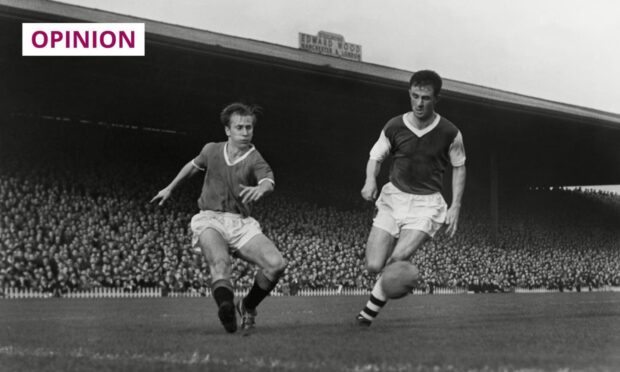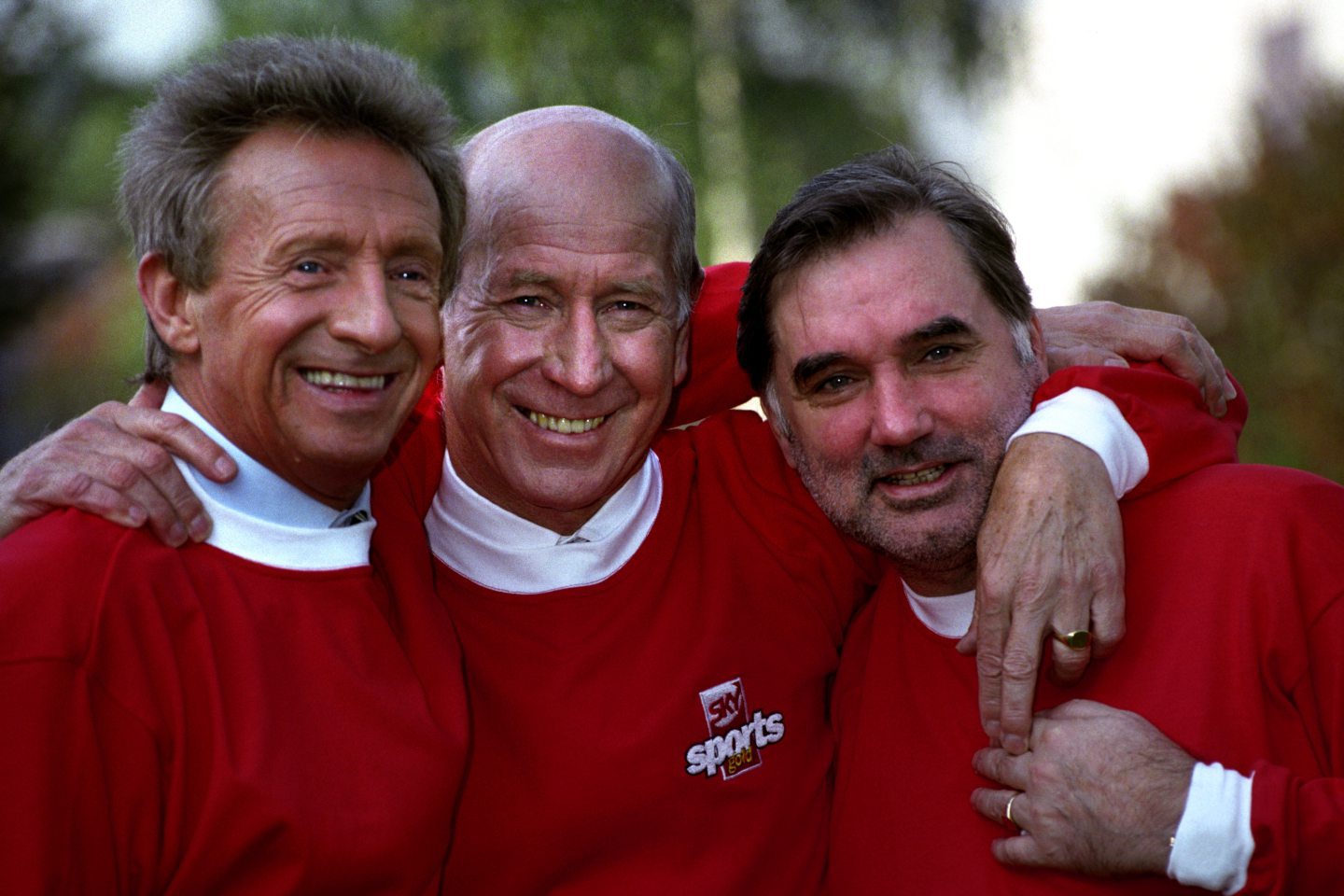My late grandfather was the best and wisest man I’ve ever known.
Such values as I have were passed on to me by him, as they were to his children and my cousins.
One piece of advice that has served me well, whenever I’ve had to take it, is: “Always keep your dignity.” He didn’t mean this in a stuffy way, or as some stern admonishment to always behave yourself. He was never naive, and our family, like every other, has its black sheep. Rather, his message was that when events turn against you, as they will for reasons either out of your control or wholly self-inflicted, you should seek to conduct yourself with grace, however hard that might be.
I thought of my grandfather when the news emerged of the death of Sir Bobby Charlton. Sir Bobby was special to me, too.
I’ve been a Manchester United fan for 40 years, a passion that began when, as a football-daft boy, I came across a book about the Busby Babes in the local library. To aid my limited comprehension level, there were plenty of photographs in it, of the players and the manager, the terrible crash in Munich on February 6, 1958 and its heartbreaking aftermath. I worked my way through the story.
I fell hard for Duncan Edwards, the strapping, superlatively gifted star of the team, killed at just 21 with all that potential left forever unfulfilled. There was the obvious pull of Sir Matt Busby, a Bellshill-born Scot who was younger at the time of the disaster than I am now, and who was so badly injured that he twice received the last rites.
But the one that really got me was Sir Bobby. He was only 20, and lost eight of his team mates among the 23 fatalities. Despite his injuries, he somehow found the strength to be back on the pitch for a game against West Bromwich Albion on March 1. He and Busby would, of course, go on to win the European Cup together a decade later, and he was a key player in England’s World Cup victory in 1966.
Sir Bobby connected United’s gilded history to its present
By the time I became aware of all this, Charlton was long retired. He was an impossibly glamorous figure to me – a true footballing great who had won everything in the game after coming through desperate tragedy.
The TV cameras would find him in the directors’ box at Old Trafford – which today contains the Sir Bobby Charlton Stand – cheering on his old side. He was very much the thread that connected United’s gilded history to its present, and, as the last living Busby Babe, remained so up until his death.
It seems likely that Charlton suffered PTSD following the crash. The fact that he was back playing so quickly afterwards says much about an era where such psychological injuries were less understood and taken less seriously.
He must have gone through some dark times, survivor’s guilt and the rest, and have had to do so without the kind of support victims receive today.
Despite this, Charlton never lost his dignity. For all that he achieved, he was clearly a humble and wise man. Players from successive generations have spoken of how important he was to them – how he would come into the dressing room after the game, win or lose, with congratulations or commiserations.
He was always on hand with advice, if it was needed. “I always felt he was in my corner,” Sir Alex Ferguson has said. It was about who he was and how he carried himself.
Having self-respect and treating others with respect
Dignity. It’s not about a stiff upper lip or any of that peculiar British class nonsense. Thank heavens that when we go through trauma today, we are encouraged to talk about it rather than bottle it up, and can easily access therapy. Workplaces are more understanding. Men, especially, are no longer expected simply to grit their teeth and bear it like some emotionless block of stone.
For me, dignity is about having self-respect and treating others with respect – not inflicting your troubles or moods on them. This is sometimes easier said than done – none of us are angels – but it should at least be an aspiration. It’s also about turning up, even when you feel like you can’t face the day. And it’s about seeking to maintain a rounded perspective in good times and bad.
It’s all too easy to fire off a cannonade of abuse from your laptop without considering that there’s a human being at the other end of it
I’m not sure the tenor of our times speaks well of us in that regard. I’ve watched with growing horror how people on social media have reacted with such venom to the situation in the Middle East. This is only the latest example of a modern trend towards performative outrage and depersonalisation: we saw it through the independence debate, the gender recognition reform debate, Brexit and much, much else. The other side aren’t just wrong, they’re evil and must be told so in no uncertain terms. They must be threatened and cancelled.
There’s no dignity – no self-respect or respect for the other – in any of this. It’s all too easy to fire off a cannonade of abuse from your laptop without considering that there’s a human being at the other end of it. It’s a world that would have been alien to my grandfather, and to Sir Bobby Charlton. I think they had it right.
Chris Deerin is a leading journalist and commentator who heads independent, non-party think tank, Reform Scotland


Conversation